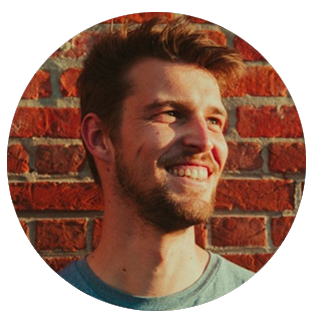
 Describe a typical day at your job
Describe a typical day at your jobI am currently working as an ESA Internal Research Follow (Post-Doc) at the European Astronaut Centre in Cologne Germany, organizing and overseeing an experiment series called “Movement in Low Gravity Environments”. Within this experiments series we aim to investigate how simulated low gravity (i.e., hypogravity, as present on the Moon and Mars for example) affects human movement such as walking, running, and jumping to inform the need for, and definition of exercise countermeasures. As a result, there are two types of ‘typical days’: a really typical office day, and a ‘typical’ lab day.
A normal office day consist primarily of computer work: attending meetings, trying to get the number of unread emails down, analyzing data from previous experiments, planning upcoming experiments, reading and writing scientific papers, all with the occasional coffee-break.
On the other hand, a typical lab day consists of setting up the lab and preparing all the equipment together with my colleagues so the experiment of that day can run smoothly, informing the participants on what to expect, running the experiment and gathering data, and finally cleaning up the lab at the end of the day. Once we have reached our pre-defined goal of the number of participants that should be tested, it’s back to the office in order to analyze the data, figure out what the data is trying to tell us and write it all down in a scientific paper.
The coolest part about my job is that – because we still don’t really understand everything – each day we are uncovering new information and adding a new piece to the puzzle. In the meantime, I have the opportunity to work with other scientist/people from a wide variety of disciplines making contents of the job and the discussion during work very interesting.
Also seeing astronauts training and flying missions from up close is very exciting!
Are there any elements of your job that you dislike?
The only part of being a post-doctoral researcher that I am not too fond of is that you’re working on a contract with a fixed duration, so once you’ve really come to know the ins and outs of the topic you’re working on and the people you’re working with, it is time to move on to another contract.
At the end of my PhD, I was looking for a next opportunity and during my search I came across an open vacancy at ESA, submitted my application, and well… here I am!
The biggest challenge of being a post-doctoral researcher is that, as I mentioned before, you are relying on contracts of fixed duration. The best advice I can give at this time is to be proactive and keeping your eyes open for new opportunities.
I graduated as a physical therapist with a Master’s degree in neurological rehabilitation. After graduating I started a PhD focusing on the biomechanics of walking in healthy adults and patients with a two-sided loss of function of the balance organ (i.e., bilateral vestibulopathy).
Especially the skills and knowledge gathered during the course of my PhD have been an important asset with regards to my current position and function.
There are a couple: communication skills and team-working skills as you are working with a lot of different people; time-management, the ability to keeping your head cool when all deadlines come together is crucial to successfully complete the projects you’re working on; problem solving and adaptability, finding solutions on the go whenever a problem pops up and adapting to any bumps in the road are also an important skill within this field of work.
These skills come with time and experience, the longer you are working in the field the more you develop these skills.
Finishing and defending my PhD for all my friends and family was one of the most rewarding milestones of my life; as well as reading the acceptance email for my current position was an indication that all the hard work and effort over the last couple of years were worth it.
Difficult question to answer… At this time, I cannot imagine a better position or work environment actually!
A good mix of specific technical skills and experiences, together with the non-technical skills mentioned above, are highly valued within an organization such as ESA.
Additionally, having experience in the (aero)space sector can be an advantage, but is not necessarily required (I’m the living proof of that one), however knowing what your strengths are and knowing (and displaying!) what specific set of skills you can add to the team are crucial.